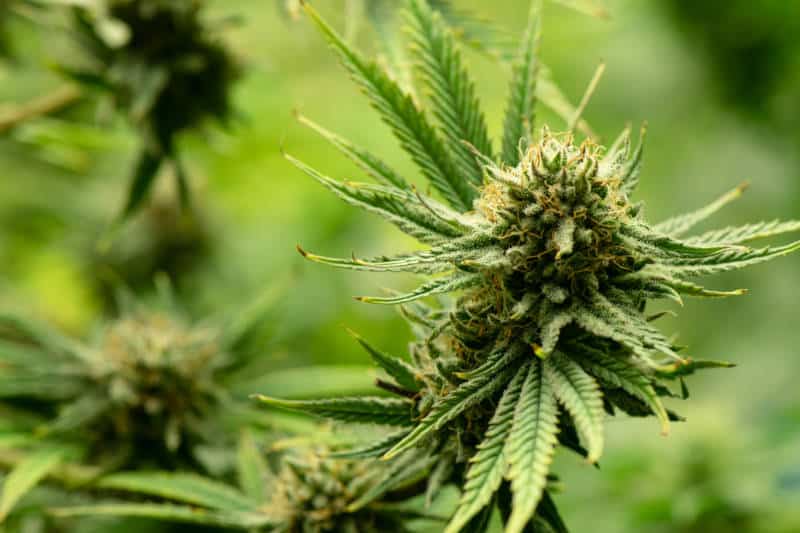How Cannabis is Impacting Oklahoma’s Economy
Since the legalization of medical marijuana in 2018, Oklahoma’s cannabis industry has experienced a monumental boom, creating a “Green Revolution” that is reshaping the state’s economy. With thousands of licensed businesses, a growing number of jobs, and substantial tax revenue, the cannabis sector has become a significant player in Oklahoma’s economic landscape. In this article, we will explore how cannabis is impacting Oklahoma’s economy, from job creation and business growth to tax revenue and its ripple effect on various industries.
The Cannabis Industry’s Growth and Job Creation
The legalization of medical marijuana in Oklahoma opened the floodgates for entrepreneurs and businesses looking to enter the cannabis market. As a result, the industry has experienced rapid growth, providing opportunities for both large-scale operators and small businesses.
1. Dispensaries: The most visible segment of the cannabis industry, dispensaries have sprouted across the state to meet the demand for medical marijuana products. These dispensaries create jobs for budtenders, managers, security personnel, and administrative staff.
2. Cultivation Facilities: With the increased demand for cannabis products, cultivation facilities have flourished in Oklahoma. These facilities employ horticulturists, growers, technicians, and other support staff.
3. Processors and Manufacturers: Processing facilities that create cannabis-infused products, concentrates, and edibles have emerged, adding another layer of economic activity and job opportunities.
4. Testing Laboratories: To ensure the safety and quality of cannabis products, testing laboratories have become an essential component of the industry, creating jobs for scientists, lab technicians, and quality assurance specialists.
Tax Revenue and Economic Impact
The influx of cannabis-related businesses and sales has translated into a substantial boost in tax revenue for Oklahoma. The state imposes a 7% excise tax on medical marijuana sales, generating significant income for various public programs and initiatives.
1. Funding for Education: A portion of the cannabis tax revenue goes towards funding education in Oklahoma, supporting schools, teachers, and educational resources.
2. Public Health Initiatives: Cannabis tax revenue also funds public health initiatives, substance abuse programs, and campaigns promoting responsible cannabis use.
3. Infrastructure Development: The cannabis industry’s economic impact extends to infrastructure development, as cities and towns benefit from increased business activity, leading to potential improvements in local infrastructure and public services.
4. Job Creation and Employment: The growth of the cannabis industry has created thousands of jobs in various sectors, contributing to a reduction in unemployment rates and an overall boost in the state’s economic activity.
Supporting Related Industries
The cannabis industry’s growth has also stimulated related industries, further contributing to Oklahoma’s economy:
1. Real Estate: As cannabis businesses seek locations for dispensaries, cultivation facilities, and processing centers, the real estate market experiences increased demand, driving property values and rental income.
2. Security and Compliance: Cannabis businesses require robust security measures and compliance services to adhere to regulatory requirements, creating opportunities for security companies and compliance consultants.
3. Agriculture and Horticulture: The demand for cannabis has driven an increased need for agricultural products, equipment, and services, benefiting the agriculture and horticulture sectors.
4. Tourism: Cannabis tourism has emerged in Oklahoma, attracting visitors from neighboring states where cannabis is not yet legal. Tourists contribute to the local economy through spending on accommodations, dining, and recreational activities.
The Importance of Responsible Regulation
While the cannabis industry’s growth presents numerous economic opportunities, it is essential to ensure responsible regulation and compliance. By maintaining rigorous licensing requirements, quality control standards, and monitoring the legal cannabis market, Oklahoma can strike a balance between economic growth and public safety.
Oklahoma’s cannabis industry is undeniably impacting the state’s economy in a significant way. The “Green Revolution” has created jobs, generated tax revenue, and stimulated related industries, benefiting various sectors of the economy. By fostering a well-regulated and thriving cannabis market, the state has unlocked the potential for continued growth and economic development.
As Oklahoma’s cannabis industry continues to evolve, it will be crucial for policymakers, businesses, and the public to collaborate in ensuring that the Green Revolution brings about positive change for the state’s economy while prioritizing the well-being of its residents. With responsible regulation and continued support for the cannabis sector, Oklahoma is poised to reap the benefits of this flourishing industry for years to come.





